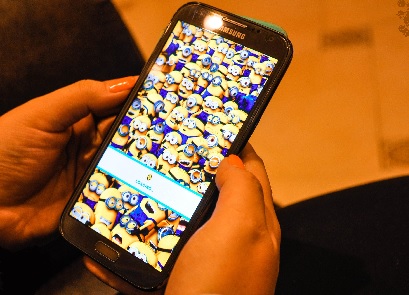Flurry Analytics has reported that people simply aren’t as into the gaming apps they used to play.
Though smartphones are very near to reaching the saturation point, to the level that even babies who can barely talk are perfectly capable of swiping on a touchscreen, mobile games seem to have been sliding in their popularity.
This indicates that the way in which people are using their smartphones and tablets is continuing to evolve.
While mobile games do still remain quite popular and they may have been the driving force behind the popularity of apps back when smartphones were still somewhat of a novelty, it doesn’t appear as though people are spending quite as much of their time with mobile gaming as they previously were. The results of a study that was recently conducted by Flurry Analytics has shown that Americans are now spending only about 15 percent of their total smartphone or tablet usage time by playing with these apps.
When considering that the figure from last year had been 32 percent, that represents a serious plummet.
 Flurry Analytics has explained this downward trend in the amount of time spent playing mobile gaming apps by saying that there has been a reduction in both the strong new hit games over the last year, and the fact that a large number of millennials spend time watching other people playing games through services such as Twitch, instead of actually being the players, themselves.
Flurry Analytics has explained this downward trend in the amount of time spent playing mobile gaming apps by saying that there has been a reduction in both the strong new hit games over the last year, and the fact that a large number of millennials spend time watching other people playing games through services such as Twitch, instead of actually being the players, themselves.
It was also pointed out by Flurry Analytics that there was a rise in the number of users who were willing to pay for in-app purchases within the games that they play, instead of spending the time waiting to receive the same or similar rewards. They’d rather spend money to speed things up than have to wait to earn the prizes, reducing the amount of playing time that is required to achieve the same goal.
The mobile games report from Flurry explained that “Gamers are buying their way into games versus grinding their way through them,” adding that “Gamers are spending more money than time to effectively beat games or secure better standings rather than working their way to the top. This explains the decline in time spent and the major rise in in-app purchases, as Apple saw a record $1.7 billion in AppStore sales in July.”

